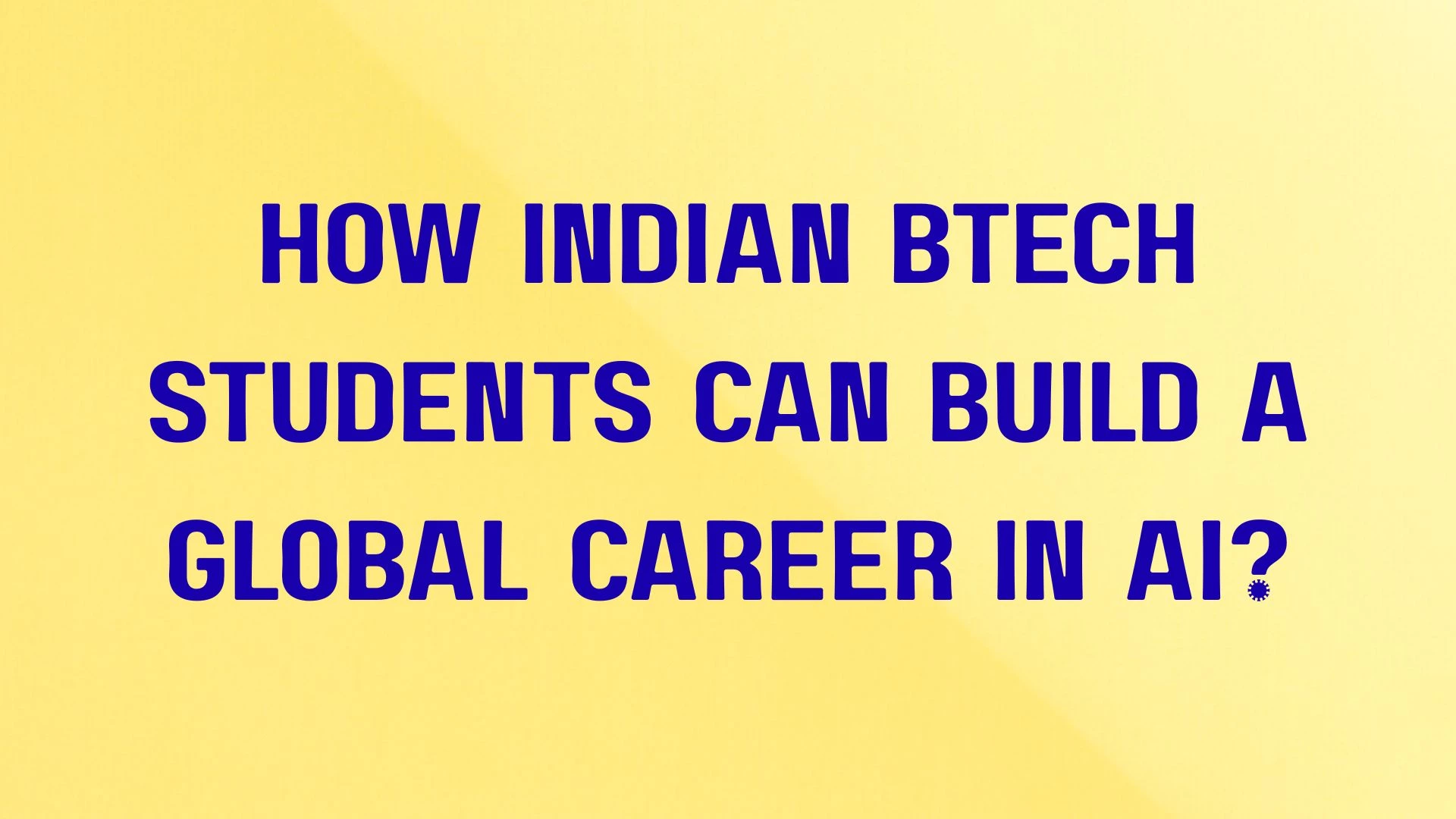In this article, we will learn about the demand of Btech graduates globally, how students can secure AI roles abroad, and the benefits of a global AI career.
Global Demand for B.Tech Graduates
The worldwide application of Artificial Intelligence across sectors like healthcare, finance, manufacturing and many more makes it one of the fast-growing and in-demand job market for B.Tech graduates. Tech giants like Google, Microsoft, Amazon, Apple, Meta, Tesla, etc are constantly looking out for professions for AI roles.
The popular AI roles that these companies hire for are- Machine learning engineer, data scientist, AI researcher, Computer Vision Engineer, and NLP specialist. For these companies hiring is not limited by border. They just want the right talent. Therefore, they also offer relocation packages and international visas to international talent. AI is the most in-demand tech job in countries like USA, Canada, Singapore, and Australia. According to a survey by red global,26% of tech job postings now require AI expertise in the US.
So, an Indian graduate with the right AI skills and expertise can definitely crack a global interview and secure a position internationally for in-demand AI roles.
How to secure a global job?
- Building the technical foundation
A solid technical foundation is non-negotiable for aspiring AI professionals. Most Indian B.Tech programs cover subjects like:
- Algorithm Design and Analysis
- Advanced Programming in Java, Python, or C++
- Database Management Systems
- Discrete Mathematics and Optimization Techniques
- Computer Networks and Architecture
While these subjects are essential for building an engineering career. Students should go beyond the classroom curriculum by adding specialised AI-related certifications such as Machine Learning Specialization, Deep Learning Specialization, AWS Certified Machine Learning and other specialised courses for better knowledge and practical learning.
2. Create a Strong Global Portfolio
A compelling portfolio is your showcase to employers. In a global scenario employers want to see demonstrable skills over academic degrees. Hence a portfolio showcasing AI projects can help an Indian BTech students get their foot in the door and prove their abilities. A good AI portfolio incluses Academic and personal projects, internship experience, competitions like hackathons, and practical AI assignments.
3. Gain Relevant Work Experience
While fresh graduates can land roles abroad, having 1–3 years of experience in India can significantly boost your chances. Employers value proven ability in real-world environments, and experience also helps with meeting visa eligibility requirements. Some work experiences also help in boosting your technical skills and can help you in impressing recruiters.
For experience, a B.Tech student can work with Indian AI startups, research labs, IT firms and gain real-world skills and experience. These experiences also prepare you for global challenges.
5.Networking
Networking can make the difference between applying to hundreds of jobs and getting direct referrals. To use networking for getting a global AI career, you need to leverage networking platforms like LinkedIn. On LinkedIn, B.Tech students can share AI projects, write relevant posts and connect with AI professionals globally.
Another way of networking is to reach out to college alumni who are working in the roles that you aspire to have. Since they have been there and done that, they can provide appropriate advice and tips for how to reach global success.
Online Hackathons and AI communities are also a great way of participating in AI discussions and opportunities. They can provide exposure and connect you with global professionals who are working in the roles that you desire to have.
6. Prepare for International Job Applications
Global AI job application differs significantly from domestic applications in their resume styles and interview expectations. A global resume will focus more on accomplishments and projects. They are tailored to each job role and country. Indian BTech students looking for global opportunities should highlight international collaborations, publications and open-source contributions.
Interviews for international AI roles include technical challenges like coding tests, model-building tasks. They also focus on case studies about AI applications and assess whether a candidate is a good cultural fit. To ace such an interview, practice questions through mock interviews with mentors and peers.
7. Target Top International Employers
Indian engineers are highly sought after by companies like Google, Meta and Amazon who value innovation, adaptability and a multicultural experience. Target such companies for a better chance of securing AI roles.
Benefits of A global career
A global career in AI offers BTech students unparalleled opportunities for growth, exposure, and impact. By working in international markets, students can collaborate with diverse teams, gain insights into cutting-edge research, and apply their skills to solve real-world problems across industries and cultures. Such experiences not only enhance technical expertise but also build adaptability, cultural intelligence, and a global perspective. Moreover, global careers often come with competitive salaries, access to advanced resources, and the chance to contribute to innovations shaping the future of technology, making them both professionally rewarding and personally enriching.
Mirai School of Technology
Mirai School of technology provides a 4-year B. Tech undergraduate program which equips students with skills, exposure and confidence required for a global AI career. The AI-first curriculum at Mirai trains students in industry-relevant tools, programming languages and application-based AI projects.
The students at Mirai excel beyond academics because of our collaborative projects, global industry tie-ups, and an environment that fosters hackathon opportunities and research capabilities. The mentors at Mirai are industry experts themselves who have worked for companies like Google, Amazon, Adobe, etc. These mentors understand the capabilities of each student and guide them in portfolio building, interviews and resume writing for a global career.
Conclusion
Getting a job abroad after B.Tech from India is more than luck. It requires preparation, persistence, and positioning yourself as a global talent. Students should start early by building the right skills, crafting a strong portfolio, and networking effectively.
With India’s reputation for producing skilled engineers and the world’s growing appetite for tech talent, your dream job abroad is well within reach.
Come and say hi to your international AI career by visiting us athttps://msot.org/

